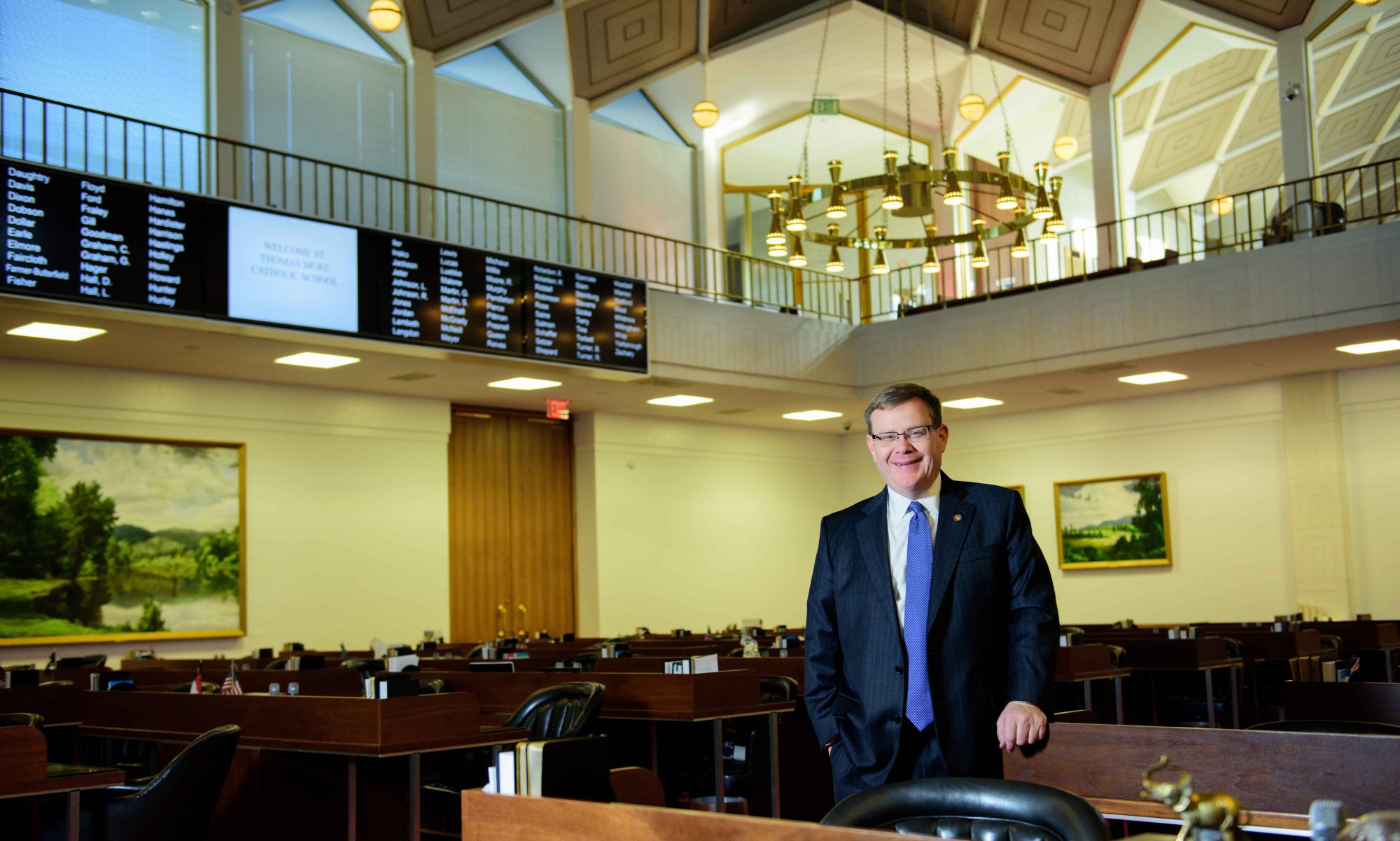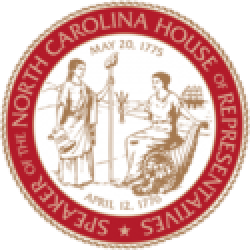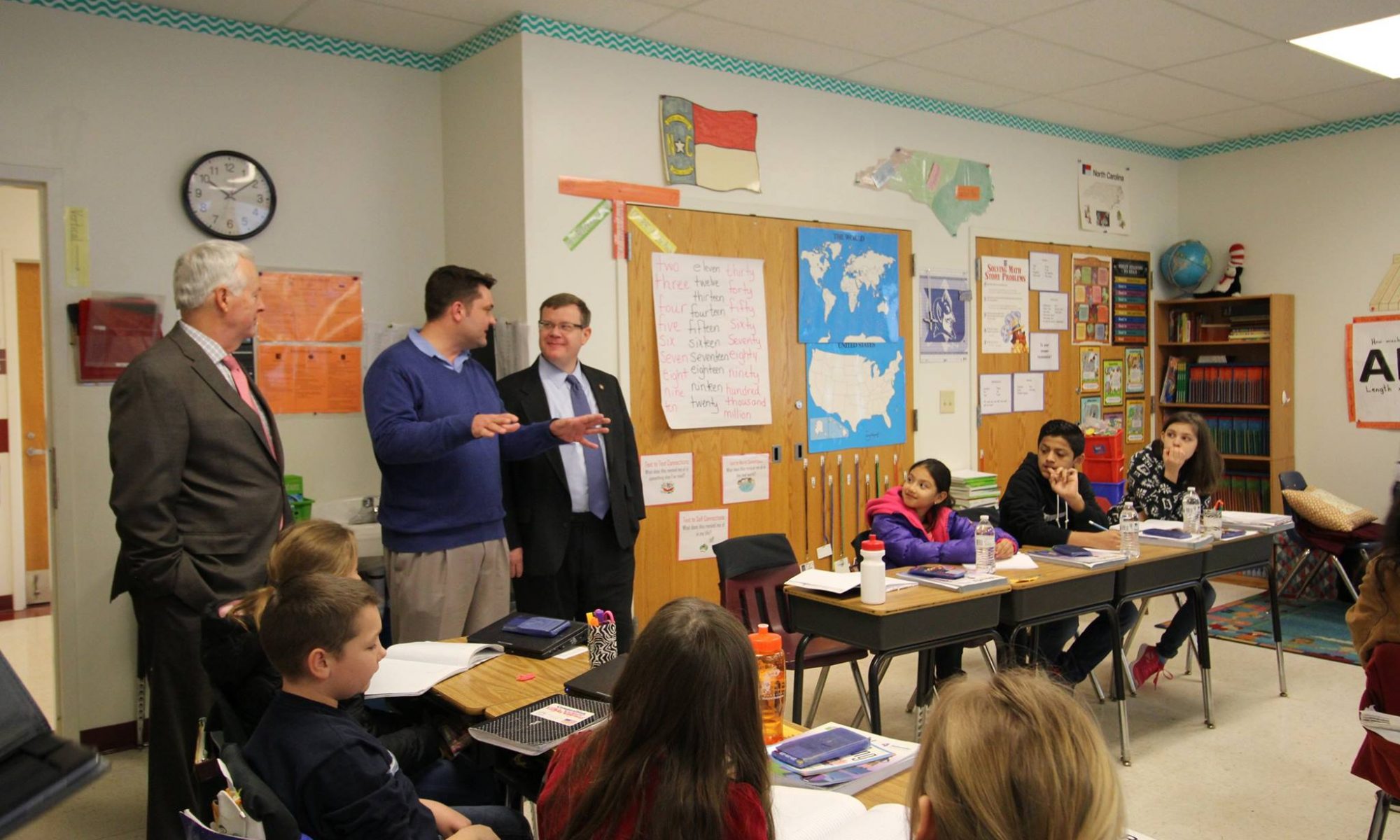Under Speaker Tim Moore’s leadership, the North Carolina House of Representatives has passed historic education reforms and investments that are transforming the state’s school systems.
All four state budgets passed during Speaker Moore’s tenure substantially increased teacher pay and overall K-12 education spending in North Carolina. The state has passed 18 states in national teacher pay rankings since 2014.
North Carolina Passes 18 States in Teacher Pay Rankings Since 2014
Educators to Receive Pay Raises in Upcoming North Carolina Budget
At long-last, starting teacher pay was increased to $35,000 and average teacher pay to $50,000 thanks to Speaker Moore’s commitment to increasing compensation for educators.
The North Carolina House also passed pay raises for principals, assistant principals and other state employees who work in education administration.
The National Association of Educators ranks North Carolina the third-fastest rising state for teacher pay in the nation since 2014.
Teachers Union Ranks N.C. Pay Raises 3rd Largest in the Nation Since 2013-14
Over 44,000 N.C. Teachers – Nearly Half – Get at Least $10,000 Raise Since 2014
5 Consecutive Pay Raises Lead Teacher Appreciation Agenda in North Carolina
North Carolina has developed a dynamic education system under Speaker Moore’s leadership, expanding options for parents and improving low-performing schools.
The state House passed substantial education policy reforms early in the 2019 legislative session, including a $1.9 billion school construction bond proposal.
Education Reforms for N.C. Teachers and Students Move Through State House
In fact, a new N.C. Lottery Fund is also committing $2 billion to Needs-Based School Construction over the next 10 years.
The state’s new Needs-Based Public School Capital Fund is in addition to the annual $100 million in capital lottery appropriations provided to North Carolina schools through the Public School Building Capital Fund, doubling the state’s total commitment to school capital to more than $3 billion by 2028.
New N.C. Lottery Fund Commits $2 Billion to Needs-Based School Construction Over 10 Years
Speaker Moore’s education priority is to equip North Carolina students with the tools to be successful and ensure they are career or college-ready after graduating high school.
Speaker Moore believes investment, innovation and meaningful reform are all critical to building the best school systems for our students.
School safety has been a critical priority of the state House, with a select committee of more than 50 members of the legislature focusing on classroom security, mental health, and crisis preparation for public schools.
Public Safety and School Security Spending Boosted in State Budget
School Safety House Committee Reauthorized by Speaker Tim Moore
Other education priorities of the state House of Representatives include reducing standardized testing for students and funding Advanced Placement exam fees for families to help students earn higher education credits and save money. Listening to teachers and students has empowered the state House of Representatives to address the critical needs of education communities.
Reduced Testing for North Carolina Students Approved by State House
N.C. Republicans Remove Cost Barrier to College Credit, More Students Succeed
The North Carolina General Assembly saved a state record $1.9 billion rainy day reserve prior to Hurricane Florence hitting the state in Fall 2018. This smart preparation helped lawmakers immediately respond to local education financial needs after the storm along with providing calendar and compensation flexibility to schools impacted by the devastation.
Florence Education Relief Offers Flexibility on School Calendars and Compensation
N.C. Education Leaders Announce Relief Plans for Schools Affected by Florence
Reducing class sizes over time is another education policy commitment of the state House that represents a shared priority with teachers, students, and families. Studies have consistently shown what most North Carolinians expect – lower class sizes mean more individual attention and a better learning environment for students, especially those vulnerable to falling behind.
Class Size Compromise Gives Schools Flexibility to Spend Increased Funding
More Education News from SpeakerMoore.com
N.C. Republicans Doubled K-12’s Share of New Spending Compared to Democrats
Education Bill to Reduce Testing, Address Achievement Gap Sent to Governor
New School Safety Training and Support Programs Pass North Carolina House
Comprehensive School Safety Initiatives, Investments Announced by Legislators
NPR’s Ari Shapiro and Speaker Tim Moore Talk Teacher Pay on ‘All Things Considered’
Education Budget Adds $700 Million, Raises Teacher & Principal Pay
Speaker Moore Thanks Teachers, Reaffirms ‘Teacher Appreciation Agenda’ in NC
North Carolina’s Teacher Salaries Rising Faster than Any State Since 2014
Jobs Legislation ‘Future Ready Students Act’ Passes House 111-0
Computer Coding as Course Elective Approved by North Carolina House
Jobs Program ApprenticeshipNC Improved by North Carolina House
Teaching Fellows Bill Passes House Committee on Higher Education
Rep. Jason Saine and Superintendent Mark Johnson Encourage Coding in K-12 Schools
House Education Chairman Proposes Teaching Fellows, Passes K-12 Performance Reform


